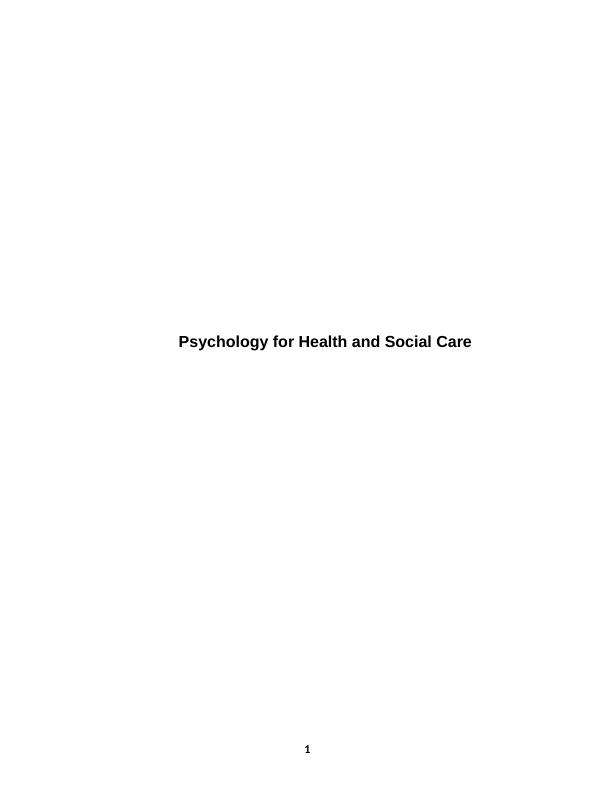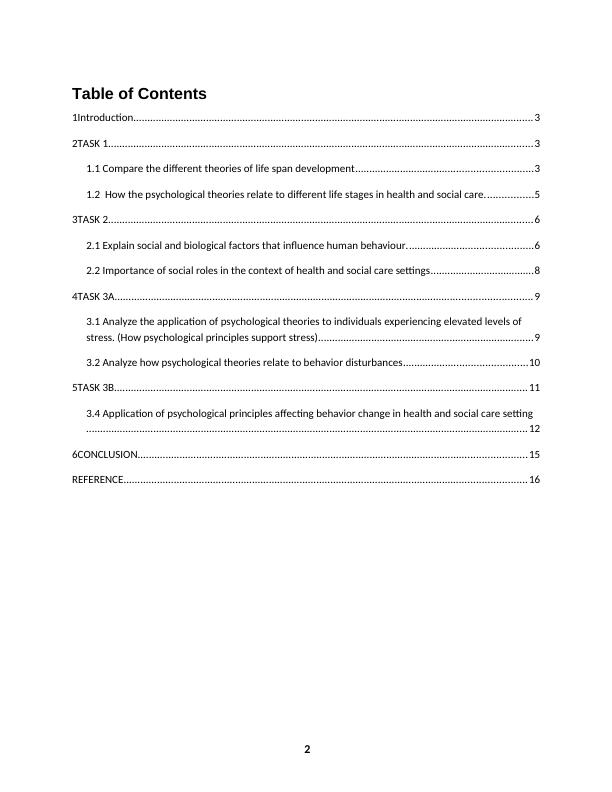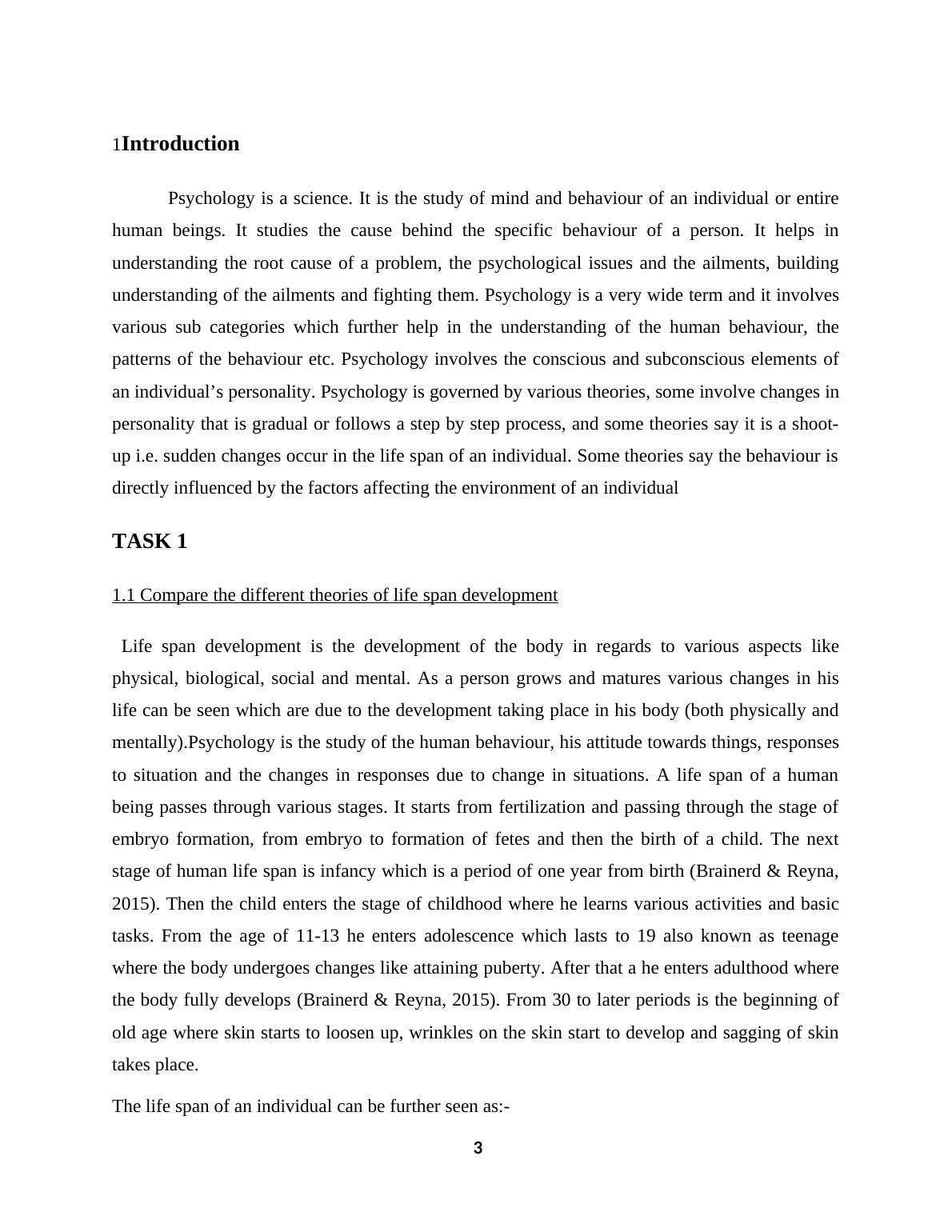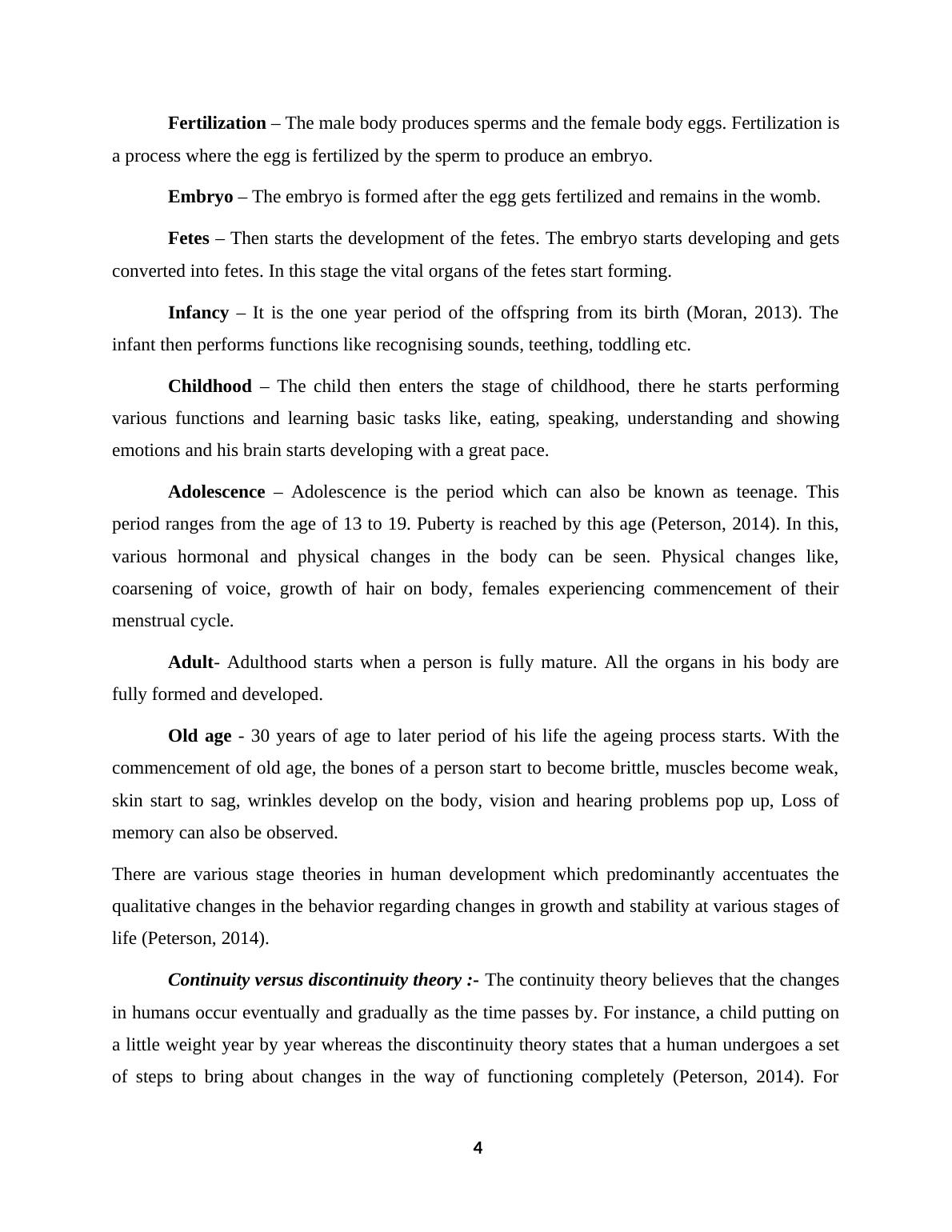Ask a question from expert
(Doc) Psychology for Health and Social Care
17 Pages5591 Words333 Views
Added on 2020-01-07
(Doc) Psychology for Health and Social Care
Added on 2020-01-07
BookmarkShareRelated Documents
Psychology for Health and Social Care1

Table of Contents1Introduction...............................................................................................................................................32TASK 1........................................................................................................................................................31.1 Compare the different theories of life span development...............................................................31.2 How the psychological theories relate to different life stages in health and social care.................53TASK 2........................................................................................................................................................62.1 Explain social and biological factors that influence human behaviour.............................................62.2 Importance of social roles in the context of health and social care settings.....................................84TASK 3A.....................................................................................................................................................93.1 Analyze the application of psychological theories to individuals experiencing elevated levels of stress. (How psychological principles support stress).............................................................................93.2 Analyze how psychological theories relate to behavior disturbances............................................105TASK 3B....................................................................................................................................................113.4 Application of psychological principles affecting behavior change in health and social care setting..............................................................................................................................................................126CONCLUSION...........................................................................................................................................15REFERENCE................................................................................................................................................162

1IntroductionPsychology is a science. It is the study of mind and behaviour of an individual or entirehuman beings. It studies the cause behind the specific behaviour of a person. It helps inunderstanding the root cause of a problem, the psychological issues and the ailments, buildingunderstanding of the ailments and fighting them. Psychology is a very wide term and it involvesvarious sub categories which further help in the understanding of the human behaviour, thepatterns of the behaviour etc. Psychology involves the conscious and subconscious elements ofan individual’s personality. Psychology is governed by various theories, some involve changes inpersonality that is gradual or follows a step by step process, and some theories say it is a shoot-up i.e. sudden changes occur in the life span of an individual. Some theories say the behaviour isdirectly influenced by the factors affecting the environment of an individualTASK 11.1 Compare the different theories of life span developmentLife span development is the development of the body in regards to various aspects likephysical, biological, social and mental. As a person grows and matures various changes in hislife can be seen which are due to the development taking place in his body (both physically andmentally).Psychology is the study of the human behaviour, his attitude towards things, responsesto situation and the changes in responses due to change in situations. A life span of a humanbeing passes through various stages. It starts from fertilization and passing through the stage ofembryo formation, from embryo to formation of fetes and then the birth of a child. The nextstage of human life span is infancy which is a period of one year from birth (Brainerd & Reyna,2015). Then the child enters the stage of childhood where he learns various activities and basictasks. From the age of 11-13 he enters adolescence which lasts to 19 also known as teenagewhere the body undergoes changes like attaining puberty. After that a he enters adulthood wherethe body fully develops (Brainerd & Reyna, 2015). From 30 to later periods is the beginning ofold age where skin starts to loosen up, wrinkles on the skin start to develop and sagging of skintakes place.The life span of an individual can be further seen as:-3

Fertilization – The male body produces sperms and the female body eggs. Fertilization isa process where the egg is fertilized by the sperm to produce an embryo.Embryo – The embryo is formed after the egg gets fertilized and remains in the womb.Fetes – Then starts the development of the fetes. The embryo starts developing and getsconverted into fetes. In this stage the vital organs of the fetes start forming.Infancy – It is the one year period of the offspring from its birth (Moran, 2013). Theinfant then performs functions like recognising sounds, teething, toddling etc.Childhood – The child then enters the stage of childhood, there he starts performingvarious functions and learning basic tasks like, eating, speaking, understanding and showingemotions and his brain starts developing with a great pace.Adolescence – Adolescence is the period which can also be known as teenage. Thisperiod ranges from the age of 13 to 19. Puberty is reached by this age (Peterson, 2014). In this,various hormonal and physical changes in the body can be seen. Physical changes like,coarsening of voice, growth of hair on body, females experiencing commencement of theirmenstrual cycle.Adult- Adulthood starts when a person is fully mature. All the organs in his body arefully formed and developed.Old age - 30 years of age to later period of his life the ageing process starts. With thecommencement of old age, the bones of a person start to become brittle, muscles become weak,skin start to sag, wrinkles develop on the body, vision and hearing problems pop up, Loss ofmemory can also be observed.There are various stage theories in human development which predominantly accentuates thequalitative changes in the behavior regarding changes in growth and stability at various stages oflife (Peterson, 2014).Continuity versus discontinuity theory :- The continuity theory believes that the changesin humans occur eventually and gradually as the time passes by. For instance, a child putting ona little weight year by year whereas the discontinuity theory states that a human undergoes a setof steps to bring about changes in the way of functioning completely (Peterson, 2014). For4

End of preview
Want to access all the pages? Upload your documents or become a member.
Related Documents
Assignment on Psychology for Health and Social Carelg...
|10
|4208
|55
Psychology Assignment Solved (Doc)lg...
|15
|4433
|269
Psychology for Health and Social Care TABLE OF CONTENTSlg...
|12
|5559
|337
Understanding Psychology for Health and Social Carelg...
|12
|4077
|147
PSYCHOLOGY TABLE OF CONTENTS INTRODUCTIONlg...
|20
|5495
|69
Psychological Theories of Human Developmentlg...
|18
|4669
|72